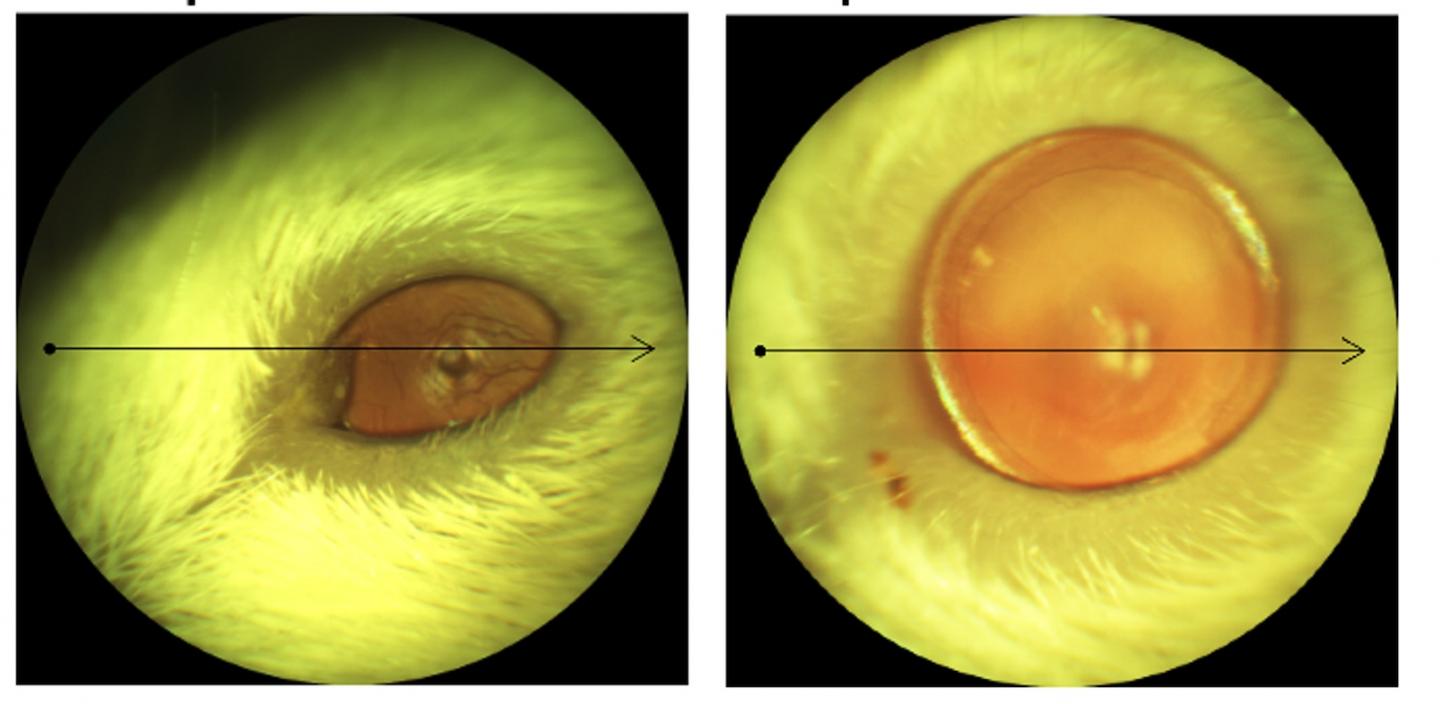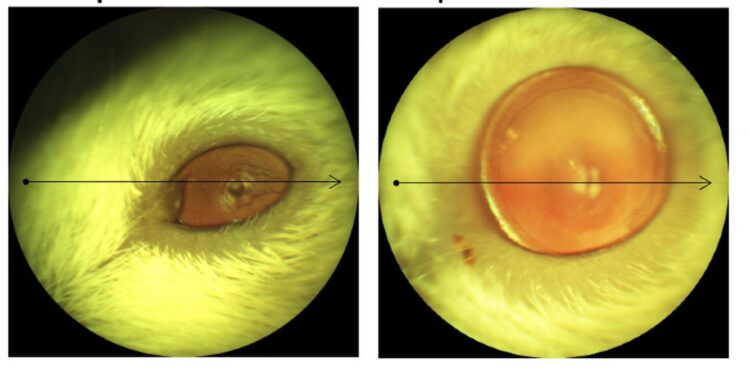Researchers at the University of Illinois Chicago have published a study showing a promising approach to using drug repurposing to treat genetic diseases.

Credit: University of Illinois Chicago
Researchers at the University of Illinois Chicago have published a study showing a promising approach to using drug repurposing to treat genetic diseases.
A team from the UIC Department of Ophthalmology and Visual Sciences published the article, “Gene dosage manipulation alleviates manifestations of hereditary PAX6 haploinsufficiency in mice” in the journal Science Translational Medicine.
Nearly all the genes in human DNA have two copies, one inherited from the mother and one from the father. There are some genetic diseases where only one copy is normal and the other one is non-functional due to a mistake in the DNA. The idea behind this study was to see if the normal copy can be enhanced to make up for the non-functional copy, said Ali Djalilian, UIC professor of ophthalmology and corresponding author of the paper.
Researchers used a mouse model of the human disease aniridia, an eye disorder that affects the iris and causes substantial visual impairment and can also be associated with systemic abnormalities. In aniridia, one copy of the gene PAX6 is normal and the other copy is non-functional. The PAX6 gene is important in eye development and patients with aniridia and PAX6 deficiency are born with eye problems, which limit their vision and can progress throughout life, Djalilian said.
The investigators screened drugs that can enhance PAX6 and found a particular class of drugs known as MEK inhibitors can stimulate PAX6 expression in the eye. They tested this drug in newborn PAX6 deficient mice and found that either topical or oral administration of the drug enhanced PAX6 and partially normalized their eye development. Mice treated with topical MEK inhibitor had clearer corneas (less scarring) and could see better.
“Patients with aniridia can develop progressive loss of their corneal stem cells which is a challenging clinical problem. Our research in the Corneal Regenerative Medicine Laboratory is aimed at regenerating healthy corneal cells, which we hope can help these and similar patients,” said Mark Rosenblatt, dean of the UIC College of Medicine and a co-author on the study.
“More studies are certainly needed before this approach can be tested in human patients, nonetheless, the study opens the possibility of using approved medications in some genetic diseases to enhance the function of a normal copy of a gene to compensate for the non-functional copy,” said Djalilian.
###
The paper’s authors are Behnam Rabiee, Khandaker Anwar, Xiang Shen, Ilham Putra, Rebecca Jung, Neda Afsharkhamseh, Mark Rosenblatt, Mahmood Ghassemi and Ali Djalilian, all of UIC; Mingna Liu and Xiaorong Liu of the University of Virginia, and Gerald Fishman of The Chicago Lighthouse Pangere Center for Inherited Retinal Diseases. The study was supported by National Eye Institute, NIH; Vision for Tomorrow; Research to Prevent Blindness, and Eversight.
Media Contact
Lori Botterman
[email protected]
Original Source
https:/
Related Journal Article
http://dx.





